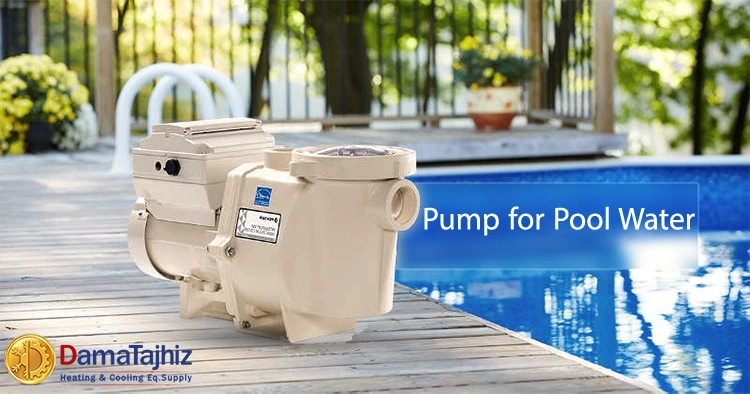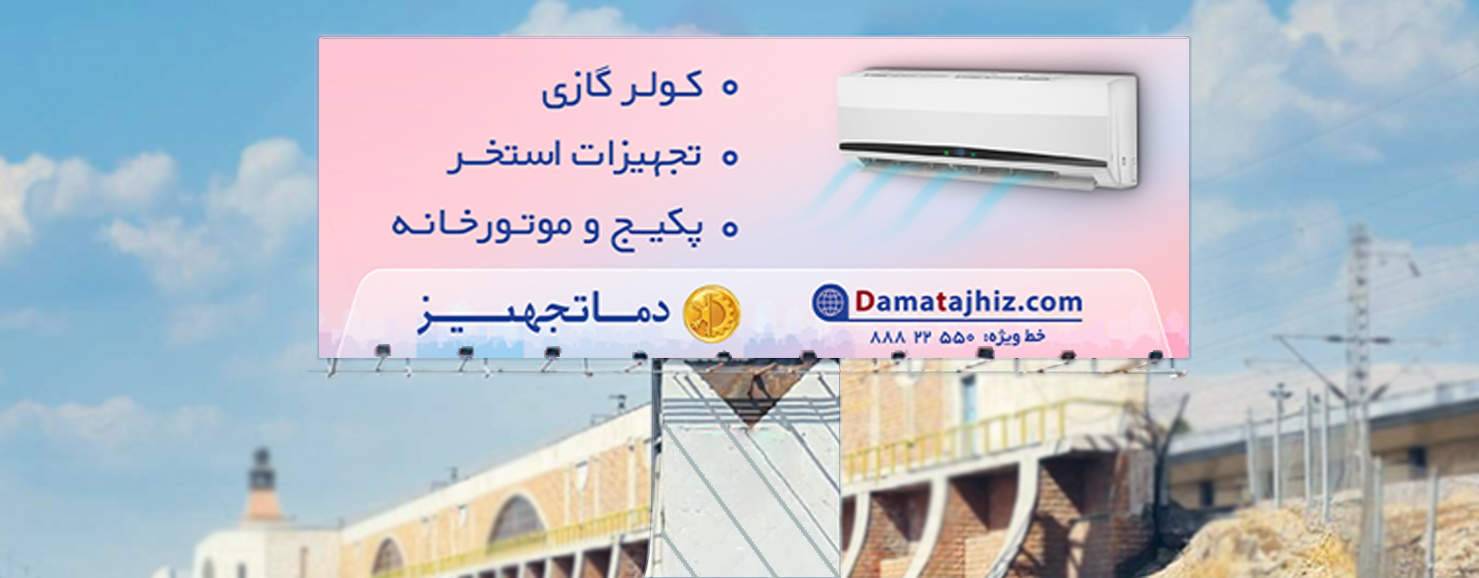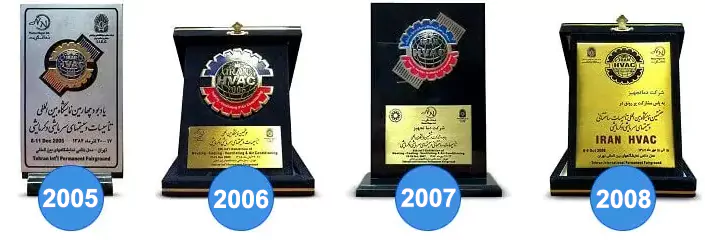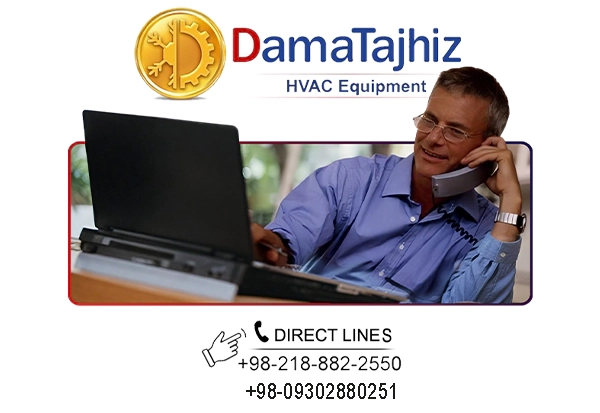Pool Pump
Pool water, when drawn by the pool pump, passes through filters and disinfection equipment and returns clean to the pool basin. Below, the technical specifications, selection guide, and price of pool pumps are reviewed.
Expert Guide for Selecting and Pricing Pool Water Filtration Pumps
The pool pump, as the main component of the water circulation system, plays a crucial role in filtration quality, water clarity, and the stable operation of the equipment. Its primary task is to provide the required flow to circulate water and overcome the pressure drop created along the piping, filter, heat exchanger, and other auxiliary equipment. An incorrect pump selection can lead to reduced system efficiency, higher energy consumption, and premature wear of the equipment.
Pool water filtration pumps are available in various types regarding motor power, flow capacity, head, single-speed or multi-speed, and application type (home pool, public pool, or jacuzzi). Each pump is designed for specific hydraulic conditions, and selection must be based on technical calculations and operational requirements. For example, pumps with higher head are used for systems with long piping routes or more equipment, while pumps with higher flow rates are suitable for larger pools or faster water circulation needs.

In this expert guide, alongside introducing different types of pool water pumps, key parameters affecting the proper pump selection are examined to enable an accurate, optimal choice tailored to the technical specifications of each project.
Note: A filter made of cast iron or compressed plastic (bakelite) should be installed in every pool pump to remove leaves, hair, and other physical contamination in the water that may damage the pump and other pool equipment.
Review, Selection, and Pricing of HVAC Equipment
Important Tips for Buying a Pool Pump
Selecting the right pool pump is one of the most important decisions for maintaining water quality and optimal performance of your pool filtration system. The pool pump acts as the heart of the system, and an incorrect choice can lead to extra costs, high energy consumption, or even equipment failure. In this article, we review 10 key tips for selecting a pool pump, focusing on factors such as pool size, filtration rate, energy consumption, and compatibility with the filtration system. This guide helps you make the best choice by considering different types of pool pumps and their technical specifications.
1. Pool Size and Required Water Flow
The pool size and volume are the first factors in choosing a pool pump. To calculate the required water flow, divide the pool volume (length × width × average depth) by the circulation rate (4–6 hours for home pools). For example, a 50 m³ pool with a 4-hour circulation rate requires a pump with a minimum flow of 12.5 m³/h. Pumps with higher flow (such as Hayward SP2615X20 with 20 m³/h) are suitable for larger, deeper pools, while smaller pools (e.g., pre-fabricated) require pumps with lower flow (such as Leo XKP 804E with 8 m³/h). Using a pump with inappropriate flow can reduce filter efficiency or put extra pressure on the system.
2. Filtration Rate
The filtration rate indicates the amount of water a pool pump moves over a specified period (usually in m³/h or GPM). This rate depends on the pump's power (in HP). For example:
- Small home pools (up to 50 m³): 0.5–1 HP pump (e.g., Emaux SC075).
- Public or large pools (100 m³ or more): 2–5 HP pump (e.g., DAB EUROPRO). For pools with high filtration load (such as public pools with many swimmers), a higher power and flow pump is necessary to quickly remove suspended particles and contaminants.
3. Energy Consumption
Energy consumption is a key factor in reducing long-term costs. Single-speed pumps (like Leo XKP) consume high energy (up to 1500 W), while variable-speed pumps (like Hayward EcoStar) can save up to 90% energy. These pumps adjust speed according to demand (1000–3450 RPM) and are ideal for solar-powered systems as they require less powerful solar panels. For example, a 1.5 HP variable-speed pump can reduce annual electricity costs from $20,000 IRR to $5,000 IRR (~$20 to $50 USD). When considering pool pump prices, also consider long-term operating costs.
4. Noise Level
Pool pump noise can be disturbing in residential areas. Single-speed pumps usually generate more noise (up to 70 dB), while variable-speed pumps (like DAB EUROPRO) at lower speeds produce less noise (~50 dB). If your pool is near the house or neighbors, choose pumps with lower noise levels. Installing the pump on anti-vibration mounts in an insulated pump room can also reduce noise.
5. Warranty and After-Sales Service
Pool pumps may require maintenance due to continuous operation or debris entering the impeller. Choosing a brand with a valid warranty (usually 1–2 years) and strong after-sales support prevents extra costs. Brands like Hayward, Emaux, and Leo have active representatives in Iran (e.g., Paya Gostarash Khorshid Taban or Damatajhiz) offering repair services and spare parts. Ensure product authenticity and warranty when buying a pool pump.
6. Compatibility with Filtration System
The pool pump must be compatible with the filtration system (sand, cartridge, or diatomaceous filter). Pump flow and head must match filter capacity to avoid excessive pressure or reduced efficiency. For example, Emaux P500 sand filter with 10.8 m³/h requires a 1 HP pump. Compare pump specifications or consult Damatajhiz experts before purchasing.
7. Technical Specifications
Technical specs like flow capacity, motor power (HP), head (pressure), and body material (cast iron, fiberglass, or plastic) must match your pool needs:
- Flow: For a 100 m³ pool, 25 m³/h is appropriate.
- Head: Total pressure drop in pipes, filter, and fittings (usually 10–15 m for home pools).
- Motor power: 0.5 HP for small pools up to 5 HP for public pools.
- Body material: Fiberglass pumps (e.g., Emaux SPH) are corrosion-resistant and suitable for chlorinated water.
Consulting technical experts, like the Damatajhiz team, helps you select the right pump.
8. Reviews and Feedback
Before buying a pool pump, read customer reviews and expert feedback on reputable websites like Damatajhiz. This helps understand the pump's real performance, strengths, and weaknesses. For instance, users of Hayward variable-speed pumps often praise energy savings and low noise, while single-speed Leo pumps are popular for limited budgets due to lower price.
9. Pump Type and Application
Pool pumps come in single-speed, dual-speed, and variable-speed types:
- Single-speed: economical but high-energy, suitable for small pools.
- Dual-speed: balance of efficiency and energy savings, suitable for medium pools.
- Variable-speed: low-energy and low-noise, ideal for large or luxury pools. For jacuzzis, high-head pumps (e.g., Bahar Pump BCM) are recommended.
10. Budget and Value
Pool pump prices in Iran vary by type and brand:
- Single-speed: $50–$100 USD (e.g., Leo XKP).
- Dual-speed: $100–$200 USD (e.g., Emaux SPH).
- Variable-speed: $200–$500 USD (e.g., Hayward EcoStar). Although variable-speed pumps are more expensive, energy savings and higher durability increase long-term value. Align your budget with long-term needs.
DamaTajhiz: Thousands of products for thousands of projects (since 2004)
Pool Pump Price List
At DamaTajhiz, we help you choose the best price for your pool pump according to your needs. Pool water filtration pumps play a key role in maintaining water quality and pool cleanliness. Reputable global brands like Aqua Strong, Hayward, DAB Italy, Leo, and Emaux are available with high quality and excellent performance. The table below shows the approximate price range of pool pumps to assist in better decision-making. For more information and to purchase a pool pump, visit the DamaTajhiz website.
| Pool Water Filtration Pump Brand | Approx. Price (USD) |
|---|---|
| Aqua Strong Pool Pump | $118 - $182 |
| Hayward Pool Pump | $142 - $241 |
| DAB Italy Pool Pump | $368 - $489 |
| Leo Pool Pump | $113 - $168 |
| Emaux Pool Pump | $207 - $280 |
With years of experience in providing pool equipment and water filtration systems, DamaTajhiz guarantees quality and after-sales service. All our products come with a valid warranty, and our support team is ready to answer your questions. For free consultation, price information, and to purchase the most suitable pool pump, contact us now or visit the DamaTajhiz website.
Types Of Pool Pumps
The classification of types of pool pumps based on speed includes the following:
- Single-speed Pool Pump
- Double-speed Pool Pump
- Adjustable-speed pool pump
Single-Speed Pool Pump
The single-speed pool pump circulates the pool water evenly at a constant speed. This type of pump can be used in pools of different sizes and is very popular because of its reasonable price.
It should be noted that a single-speed pool pump always works at the same speed, which can increase electricity consumption.
Double-Speed Pool Pump
The double-speed pool pump can adjust the speed at either high or low speeds. The consumption of electrical energy decreases when the pump is running at low speed.
The high speed is used for the initial filling of the pool water cleaning the pool with disinfectant, and the low speed is suitable for normal circulation of the pool water.
Adjustable-Speed Pool Pump
An adjustable speed, or eco, pool pump adjusts its speed depending on what it's doing. This type of pool pump reduces the amount of electricity used by the pump.
Eco pool pumps have better performance than other types of pool pumps and produce less noise, but they are more expensive than the previous two types.

DamaTajhiz; Guide to Selection and Pricing of HVAC and Building Facilities Equipment (Since 2004)
Features & Benefits of Pool Pumps
These are some of the essential features and benefits of the pool pumps:
- Low noise performance
- Corrosion resistance body or shell
- Corrosion-resistant materials (made of steel or abs)
- Made in an integrated and watertight form.
Pool Pump Ports and Connections
The content below will inform you about the ports of your pool that are meant to connect to a pump:
- Drainer Port: The main drainer port is located on the lowest part of the pool, where the pool's bottom is slanted towards that point. Most dirt and debris in the pool are drained from this location by the pool pump.
- Overflow Port: Skimmers and overflows collect water from the pool surface, which contains a substantial amount of floating pollution such as oil, leaves, and other debris that does not sink or settle and remains on the pool water's surface.
Note: It should be noted that the number of drainers must be greater than three, with an extra drainer for every 20 square meters of pool dimension.
Pool Pump Pressure & Flow Rate Calculation
In general, two factors should be considered when calculating the pressure and flow rate of a pool pump, "the pressure drop", and "the volume of the moving water".
Project installation experts and engineers choose pool pumps after determining the type of filter and measuring the pressure drop of the water going through the filter.

Factors that Affect the Calculation of the Pool Pump Pressure
The quantity of pressure drop formed in the filter is determined by the pool filter type (diatom, cartridge, sand) as well as the material of the filter (FRP and metal).
It is required to consider the pressure drop values that occur in the pipe, valves, and connections based on the length of the pipes and connections, as well as the type of the pipe.
Factors that Affect the Calculation of the Pool Pump Flow Rate
The flow rate of the pool pump is calculated based on the volume and number of water circulation through the filter per hour, which is naturally equivalent to the filter's capacity.
Pool Pump Installation Tips
Here are the 9 tips you should accrue when installing a pool pump:
- As a general rule, the pool treatment pump should be installed at least 6 inches above the floor of the engine room (to prevent damage to the pump's electromotor from sand filter backwash water or surface water on the floor of the engine room), on a flat and vibration-free surface.
- The pool pump should be installed in such a way that the technician can service or replace it easily.
- A sliding valve with a spool nut should be installed on the way of the water input and output so that the pump can be easily removed if it needs to be repaired or replaced.
- Install pool pumps away from the base of the filter because if/when there is a need to remove the filter, the electric motor will not be exposed to getting wet and, therefore, damaged.
- Avoid using miter bends and connectors with a 90-degree angle.
- If the pool pump is located where the noise from the pump's vibrations can be felt, cork cushions or rubber industrial vibration absorbers should be utilized throughout the pump foundation.
- Pool pumps need to be installed close to and below the water level of the pool.
- A backup pool pump with the same technical requirements as the other pump is required so that in case there is a need for repair or service of the main pump, the backup pump will allow water circulation to remain uninterrupted. Furthermore, using two pumps, the complete water system can be drained more quickly, especially in public pools.
- A filter should be installed in the pool pump way to catch hair, dirt, and other suspended debris so that it can prevent debris from wrapping around the impeller of the pool pump.
DamaTajhiz; The Best Prices and Brands of Ventilation, Heating, and Building Facilities Equipment (Since 2004)
Note:
The strainer or sieve must be non-corrosive, and the holes in its basket must be no larger than one-eighth of an inch in diameter.
Furthermore, the total area of these holes should be approximately 10 times the cross-section area of the hair catcher inlet pipe.
The pressure drop is reduced, and the duration of the hair catcher's operation is increased before each cleaning session with such an area is required.
Pool Pump Power Calculation
You can calculate the power of the pool pump using this formula:

P: Motor power (hp)
Q: Flow rate (GPM)
H: Pressure rate or head (ft)
Ɣ: Weight of the water (equal to 1)
Eeff: Efficiency of the pool pump, which is considered to be between 0.5 and 0.7
Buying a Pool Pump
To buy the right pump for your pool, consider the distance from the engine room to the pool (the length of the piping) and the pressure drop of appliances and equipment such as a filter, strainer, a pool heat exchanger (or the water heater), filter pressure drop, and connection pressure drop.
As well as the volume of the pool (to calculate the pressure and flow rate or water volume) should be considered depending on the usage of the pool (indoor or outdoor pool).
On the DamaTajhiz HVAC website, technical information on dozens of models of pool pumps from various models and popular brands such as Emaux, Hiwater, Leo, Hayward, etc., with original guarantees has been provided for you to experience easy and smart shopping.
Pool Pump Price
The price of the pool pump is usually determined by the type of use, the size of the connections/ports, the pump pressure, the flow rate, and the size of the pool so that you can choose the best model among dozens of pool pump models based on your needs on the DamaTajhiz website.
It should be noted that the pricing of the pool pumps provided on the DamaTajhiz HVAC website is up-to-date, and the discounts are already included.
Dear Users:
If, after reading the above material, you have more questions about deciding to buy different types of pool pumps, diatomaceous and pool pumps, you can contact the pool equipment sales experts at extension numbers 103 – 105 - 106. Get pool pump advice and ask your questions.
Because the specialized group of DamaTajhiz HVAC Group provides all kinds of pool pumps in the Middle East region, if you need a pool pump for any of the countries in the region, you can place your purchase order with confidence, product guarantee, and reasonable price. Please leave it to our sales experts.
You can order any HVAC and MEP products, including different types of air washers, cooling towers, air handling units, chillers, industrial evaporative coolers, air curtains, burners, cast-iron or steel boilers, heat exchangers, gas heaters, unit heaters, circulation pumps, sand filters, water and fuel storage tanks, and more, from countries such as the UAE, Armenia, Tajikistan, Georgia, Azerbaijan, Turkey, Oman, Pakistan, Turkmenistan, Afghanistan, Kuwait, Bahrain, Qatar, Iraq, and others across Asia, the Middle East, and Europe, and have them delivered to your city (Manama, Baghdad, Karachi, Dubai, Sharjah, Muscat, Riyadh, Abu Dhabi, Kuwait City, Jeddah, Sana'a, and Doha Amman, Sulaimaniyah, Sofia, Kirkuk, Islamabad, Mosul, Erbil, Dushanbe, Aleppo, Damascus, Baku, Beirut, and Kabul) in the shortest possible time. So, contact us by phone call or WhatsApp message through the number: +98-930-288-0251.
"Knowledge Fuels Better Choices"
Registered Trademark and Stewardship Business Licenses Issued by the Union of Virtual Business Association and the HVAC Equipment Industry.
DamaTajhiz HVAC Participation at International HVAC and Construction Facilities Exhibitions Demonstrates its Global Reach and Commitment to the Industry.
We Look Forward to Your Call and the Opportunity to Meet You
SHARE THIS CONTENT TO SPREAD THE KNOWLEDGE
| |
Head Office: No. 463,Talebian Alley,Taleghani St.Tehran,Iran


DamaTajhiz has provided the opportunity to sell and ship specialized HVAC equipment for applicants in the following countries as the first and the most popular online store for selling HVAC equipment (Heating , Ventilation , Cooling , Air conditioning) in the Middle East : Afghanistan – Tajikistan - Uzbekistan – Turkmenistan – Azerbaijan – Armenia – Georgia – Turkey – Iraq – Syria – Jordan – Kuwait – Emirates – Qatar – Oman.


















